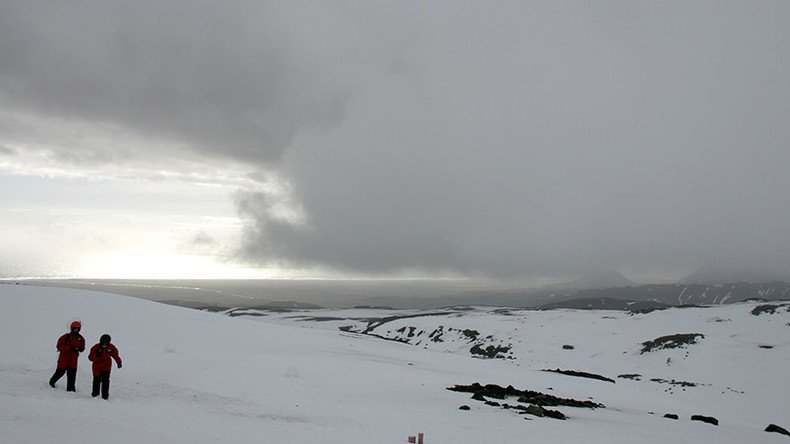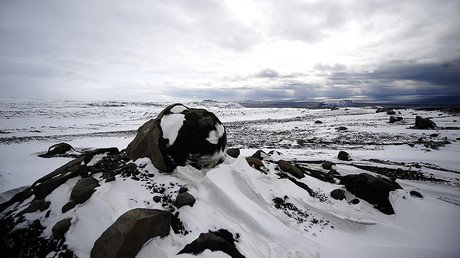‘Elevated unrest’ at Katla volcano triggers aviation alert increase in Iceland

Unusual seismic unrest around Eyjafjallajokull’s neighbor Katla has forced Iceland’s Met Office to raise the aviation alert level to yellow, while the country’s Civil Defence activated a contingency plan for a possible eruption of the long “overdue” volcano.
The alert was raised on Friday due to a seismic unrest in the Katla volcano in Mýrdalsjökull, southern Iceland, with the yellow level meaning that the “volcano is experiencing signs of elevated unrest above known background levels”. There are two higher levels of the alert.
Icelandic Meteorological Office reports increase in seismic activity at Volcano #KATLA. https://t.co/9gKsixzJKSpic.twitter.com/Ne1o0tgrY0
— JACDEC (@JacdecNew) 30 сентября 2016 г.
“An intense seismic swarm is ongoing since yesterday morning 29 September at Katla volcano. An intense pulse started today at 12:02 (30 September) with several earthquakes around magnitude 3 or larger. No seismic tremor has been detected,” reads the statement issued by the Icelandic Met Office.
The Met Office continues to monitor the Katla volcano’s ongoing seismic activity closely. Iceland’s Civil Defense, however, is preparing for a possible eruption. The National Commissioner of Police and the District Commissioner of Police in South Iceland have declared a Civil Protection Uncertainty phase during a meeting on Friday. A warning was issued for travelers in the vicinity of the volcano.
Katla is located some 140 kilometers (87 miles) from the capital Reykjavik. The last major eruption occurred in 1918, and scientists believe the volcano is “overdue”.
Katla has erupted a couple of times since, but these eruptions were minor and did not break the ice cap.
Two quakes rocked the caldera of Katla volcano last month. The jolts measuring 4.5 and 4.2 were accompanied by some 20 aftershocks. According to scientists, the major eruption of Katla is “long-awaited” but still can be decades away.
In 2010, Katla’s neighbor, the infamous Eyjafjallajokull volcano, erupted, producing enormous cloud of ash. It paralyzed air transportation in Europe, and tens of thousands of flights were suspended.













